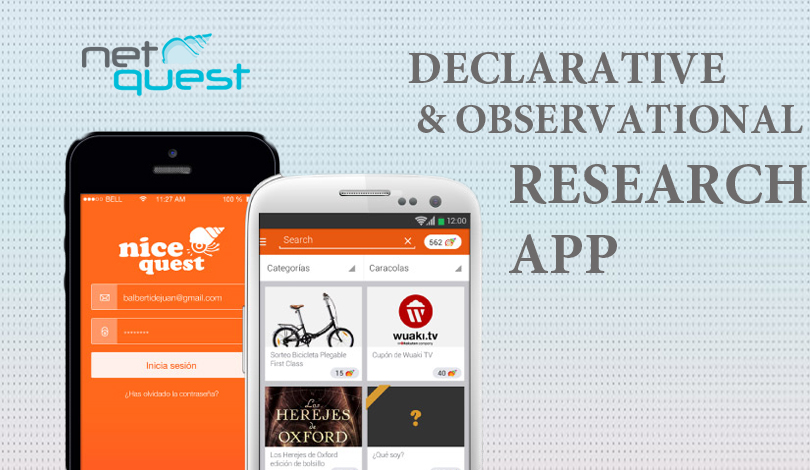Mobile devices now give research participants more ways than ever to share rich information quickly, using written words, voice, photos, or videos.

But they can also raise the risk that participants won’t feel trusting enough to participate in market research if they worry that their personal information might be misused. This includes information that they knowingly share (in any form) before, during, or after they participate, as well as geo-location or other data that might be captured passively from their mobile devices.
To help overcome these concerns, the global market research association ESOMAR formed a Mobile Privacy Task Force to identify proactive ways to reduce privacy risks for people who participate in market research that involves mobile devices. This Task Force 1) updated the ESOMAR’s detailed Professional Standards regarding mobile research (available on esomar.org). and 2) created two lists shown here, to help research providers and users take proactive steps to protect participants’ privacy and gain their trust.
“12 Key Requirements for Mobile Research” is a concise checklist of things for research providers and buyers/users to consider when designing, conducting, and reporting or archiving mobile-enabled research.
12 Key Requirements
for Mobile Research
For research providers and buyers/users
June 2013
(Parenthetical numbers refer to full code on esomar.org)
- Be open and transparent when asking people to participate in research. Always specify the purpose of the research, the information you plan to collect (including any photographs or recordings), how you plan to collect it, how it will be protected, and with whom it will be shared and in what form (2.3).
- During recruiting and throughout the project always provide your privacy policy and do so in a way that is easily accessed and understood by participants (2.3).
- Ensure that any personal information that could be used to identify a participant is kept securely. Be especially careful with photographs and recordings (2.4).
- Ensure that any information collected as part of a research project is never used for any purpose other than research without the participant’s prior consent (2.1).
- All information shared with clients or others must be de-identified, including pictures and video, unless you have explicit consent to share it in an identifiable form (3.3).
- Never share any personally-identifiable information in any form with your client unless you have explicit consent from the participant and there is a formal agreement in place specifying that the information will be protected from disclosure and used only for research purposes (2.4).
- Never ask participants to do anything that might risk their personal safety, compromise their confidentiality, damage their device, or harm them in any way. This also means covering any additional costs (such as roaming or texting charges) they might incur as part of the research (2.5).
- Never conduct any research with children without first gaining the consent of a parent or legal guardian (2.6).
- Always understand and obey all relevant laws of the country where the research is being conducted and comply with relevant industry codes (2.2).
- 10. Take special care in the design and delivery of any downloadable or web-based apps to ensure they are bug-free; easy to use on small screens; do not alter the settings of the device; only collect information for which the participant has given consent; do not denigrate performance of the device; and can be uninstalled easily at the conclusion of the research (3.1).
- 11. When conducting passive data collection such as geo-location tracking, or web browsing behavior, ensure that the participant is aware of the type of information being collected and how it will be used (3.2).
- 12. Do not collect or use personal information about third parties that may be stored on a participant’s mobile device such as in contacts list, recently called numbers, email histories, etc. without the consent from those whose personal information is being collected (3.5)
“Our Commitment To You As A Research Participant” provides a starter template that providers and users can customize for use when recruiting or inviting participants to engage in mobile research.
OUR COMMITMENT TO YOU AS A RESEARCH PARTICIPANT
Your participation in this research is important and valued. When you share feedback, opinions, and other information with us we are able to help our clients improve their products and services for people like you.
1. Your participation is voluntary
Before we collect any information from you, we will describe the purpose of the research and the information we plan to collect.
We will also explain how we will collect it, how it will be protected, with whom your information might be shared and in what form.
Sometimes research may require tracking your location or your browsing or communications activities. If we intend to do so, we will tell you in advance and let you know exactly what data are being captured. For this research project we plan to collect the following information:
Note: List the type of information that will be collected. General examples are given:
- [personal information from screening]
- [personal information the participant provides during the research]
- [visual information the participant provides]
- [other]
We will ask for your consent before collecting the information, and if any of these change during the course of the research, you will be informed and given the opportunity to renew your consent. You may withdraw from the research at any time.
2. We will protect your personal information
We will not share any information about you, including pictures or video clips, with anyone unless we have your specific permission to do so or we have taken steps to ensure that you cannot be identified.
We invite you to review our privacy policy here [insert link].
Among other things, it guarantees that you will not receive marketing or advertising messages as a result of participating in this research.
3. Participation is free
Your incentive for participating includes an amount to cover any incremental mobile fees you might incur for roaming or texting.
4. Your safety is important
We will never ask you to do anything that is dangerous (such as texting while driving or taking photos in areas or situations where photography is prohibited).
5. We will not damage your device
Any software we ask you to install will be thoroughly tested and proven safe so that it does not harm your device. When the research is complete we will instruct you on how to remove it.
6. We always obey the law
We will never knowingly violate the laws that apply where you are or ask you to do so as part of the research.
7. We are here to help
We recognise that not everyone is a technical expert, so if you need help with technical tasks (such as downloading an app or uninstalling it when the project is over) we will provide it.
Source: ESOMAR June 2013
Betsy Leichliter is a member of the Qualitative Research Consultants Association (QRCA). Leichliter Associates provides innovative qualitative and interactive research for new products, services, environments, and experiences, based on the belief that Open Minds Open Minds®. A proud associate of the ThinkGlobalQualitative.com network.
QRCA is celebrating 30 years of leadership in Qualitative Research, 1983-2013.














